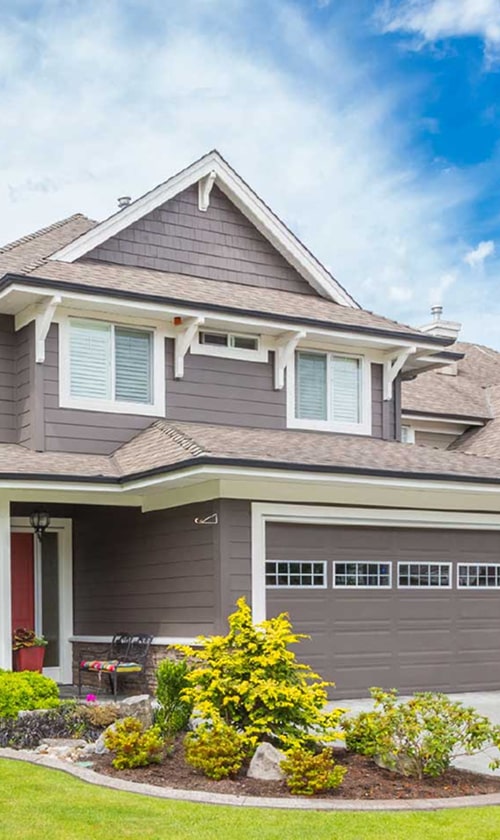Understanding Energy-Efficient HVAC Systems

In our efforts to reduce energy consumption and enhance indoor comfort, we prioritize two crucial facets of energy-efficient HVAC systems: innovative components and design, and the significance of industry-recognized performance metrics like SEER and EER ratings.
Components and Design of Energy-Efficient HVAC Units
Energy-efficient HVAC units are engineered with advanced components to optimize performance while minimizing energy usage. A crucial aspect of design is the evaporator and condenser coils, which are often made from high-quality materials like copper or aluminum to facilitate heat transfer. The compressor, commonly referred to as the heart of the HVAC system, is designed to operate effectively at variably controlled speeds, resulting in significant energy conservation.
- Coil Design: Enhanced heat transfer capabilities
- Compressor Type: Variable speed for energy conservation
Key Performance Indicators: SEER and EER Ratings
When assessing energy efficiency, Seasonal Energy Efficiency Ratio (SEER) and Energy Efficiency Ratio (EER) stand out as key performance indicators.
- SEER Rating: Measures the cooling output during a typical cooling-season divided by the total electric energy input. A higher SEER rating indicates greater efficiency.
- EER Rating: Pertains to the cooling efficiency at peak operating conditions. Similar to SEER, a higher EER signifies superior performance.
By focusing on HVAC systems with high SEER and EER ratings, we ensure more energy-efficient air conditioning that aligns with rigorous energy efficiency standards.
Environmental and Economic Benefits

Energy-efficient HVAC systems offer significant advantages over traditional units, from reducing our impact on the environment to providing tangible economic savings. Let’s explore how these innovative systems benefit both our planet and wallets.
Reducing Greenhouse Gas Emissions and Carbon Footprint
Energy-efficient HVAC systems significantly lower greenhouse gas emissions. Each unit we install that uses less energy also reduces the demand on power plants, which predominantly rely on fossil fuels. This reduction in energy consumption directly translates to fewer carbon dioxide emissions. To illustrate:
- Traditional HVAC System: Generates X tons of CO2 annually
- Energy-Efficient HVAC System: Cuts emissions by up to 30%
Switching to an energy-smart system is a responsible step toward sustainability, ensuring we maintain a healthier environment.
Utility Bills and Long-Term Savings Implications
Investing in an energy-efficient HVAC system impacts our utility bills positively. The initial cost might be higher, but the long-term savings are undeniable:
- Reduction in Energy Bills: Save an estimated 20-40% on our electric bill.
- Enhanced Durability: Energy-efficient systems often have a longer lifespan, thereby saving us money on replacements and repairs.
By decreasing our energy usage, we not only save money but also contribute to a more sustainable energy infrastructure, lowering utility costs for everyone.
Installation and Maintenance Factors

Proper installation and regular maintenance are crucial to the efficiency and longevity of HVAC systems. Correct sizing and installation quality can significantly reduce energy consumption, while consistent maintenance ensures the system remains at peak performance.
Considering the Proper Size and Installation Quality
When it comes to HVAC installations, one size does not fit all. Choosing the correct size for your space is essential to avoid inefficiencies. Ill-sized equipment can lead to frequent on-and-off cycling, causing unnecessary stress on system components. We ensure that we undertake a comprehensive load calculation, factoring in insulation, ventilation system, and ductwork to ascertain the appropriate unit size.
Installation quality directly affects performance; thus, professional installation is non-negotiable. A correctly installed system will have well-sealed ductwork to minimize energy loss and provide adequate ventilation for humidity control and air quality. Our team focuses on airtight duct installation and proper insulation to improve overall efficiency.
Maintenance Practices for Optimal Performance
Regular maintenance is the backbone of a functioning HVAC system. We have a robust strategy that includes:
- Cleaning and replacing air filters to enhance indoor air quality
- Inspecting and repairing ductwork for leaks
- Checking and calibrating thermostats for accurate temperature control
- Assessing and cleaning coils and fans to prevent airflow obstructions
- Verifying that the system maintains correct humidity levels
By incorporating these practices, we ensure that HVAC systems operate at their intended efficiency levels, which not only conserves energy but also prolongs the lifespan of the system. Keeping a detailed maintenance log coupled with periodic professional checks reinforces the system’s energy efficiency and reliability.
Impact on Comfort and Air Quality
Energy-efficient HVAC systems are at the forefront of enhancing comfort levels and air quality in our indoor spaces. These advanced systems are pivotal in consistently maintaining optimal temperature and humidity, while improving the air that we breathe inside our homes and offices.
Temperature Regulation and Humidity Control
Energy-efficient HVAC units excel at maintaining a stable indoor climate. This precise temperature control ensures rooms stay at a comfortable warmth during the colder months and provide a cool retreat in the heat of summer. Heating and cooling adjustments are more responsive and fine-tuned, avoiding the temperature swings associated with less sophisticated systems.
Regarding humidity control, these systems adeptly balance moisture levels, which is crucial for comfort. Excessive humidity can lead to a muggy and uncomfortable environment, while too little can cause dryness and irritation. By intelligently moderating humidity, energy-efficient systems can prevent these extremes.
Ventilation and Filtration for Healthier Indoor Environment
Proper ventilation is essential for removing stale indoor air and introducing fresh outdoor air, which is where energy-efficient HVAC systems shine. These units include improved ventilation mechanisms that not only aid in reducing the concentration of indoor pollutants but also minimize energy losses during the exchange of air.
Furthermore, advanced air conditioning units come with superior air filters, which are integral to capturing dust, pollen, and other airborne contaminants. By regularly cycling air through these filters, our HVAC systems work tirelessly to ensure the air quality inside our spaces is healthy, thus contributing to our overall well-being and comfort.
Incentives and Financial Advantages
Investing in energy-efficient HVAC systems offers tangible fiscal benefits and incentives that make them advantageous for property owners. By understanding and leveraging tax credits, rebates, and other incentives, we can effectively reduce the initial cost of installation and enjoy long-term savings.
Tax Credits, Rebates, and Energy Star Incentives
Our choice to install an energy-efficient HVAC system could be financially rewarding due to various incentives. Energy Star-certified products often qualify for:
- Federal tax credits: Substantial reductions in tax liability for installing qualifying systems.
- Rebates: Utility companies frequently offer rebates for purchasing energy-efficient equipment.
The government encourages property owners to opt for environmentally friendly installations. These financial incentives not only offset the upfront costs but also promote energy conservation.
Calculating the Return on Investment
A meticulous calculation of the return on investment (ROI) is essential when considering an energy-efficient HVAC system. To assess ROI:
- Subtract the cost of the new system and installation from the sum of expected energy savings and incentives over the system’s lifespan.
- Divide this figure by the new system’s cost.
We can project significant long-term savings on utilities, making energy efficiency not only an environmentally responsible choice but also a financially astute one. It’s crucial to assess specific details, as ROI can vary based on the system chosen and local incentive programs.
Frequently Asked Questions
In this section, we address common inquiries about energy-efficient HVAC systems, focusing on their cost-effectiveness, financial incentives, impact on energy consumption, and environmental advantages.
How can energy-efficient HVAC systems reduce operational costs for commercial buildings?
Energy-efficient HVAC systems lower operational costs by using less energy to heat and cool spaces, resulting in significantly reduced utility bills. Advanced technologies such as variable speed compressors and high-efficiency filters also contribute to lower maintenance expenses.
What are the long-term financial benefits of investing in energy-efficient HVAC systems?
Long-term financial benefits include sustained energy cost savings and potential increased property values. High-performance HVAC systems tend to have longer operating lives, providing substantial savings over the years.
To what extent do energy-efficient HVAC systems qualify for tax credits or incentives?
Many regions offer substantial tax credits and incentives for the installation of energy-efficient HVAC systems. These financial benefits seek to encourage businesses to adopt eco-friendly technologies, easing the initial investment burden.
How does the efficiency rating of an HVAC system impact energy consumption?
The efficiency rating, often measured in SEER (Seasonal Energy Efficiency Ratio) for cooling and AFUE (Annual Fuel Utilization Efficiency) for heating, directly correlates with energy consumption. Higher-rated units consume less energy, leading to decreased energy bills.
What are the environmental benefits of using an energy-efficient HVAC system?
Energy-efficient HVAC systems reduce greenhouse gas emissions and reliance on fossil fuels. They also minimize a building’s carbon footprint and contribute to cleaner air quality by reducing the number of pollutants released into the atmosphere.
How does the use of an energy-efficient HVAC system contribute to overall building sustainability?
By optimizing energy use and reducing waste, energy-efficient HVAC systems are integral to a building’s sustainable practices. They assist in achieving green building standards and help in maintaining a balance between environmental responsibility and economic viability.




